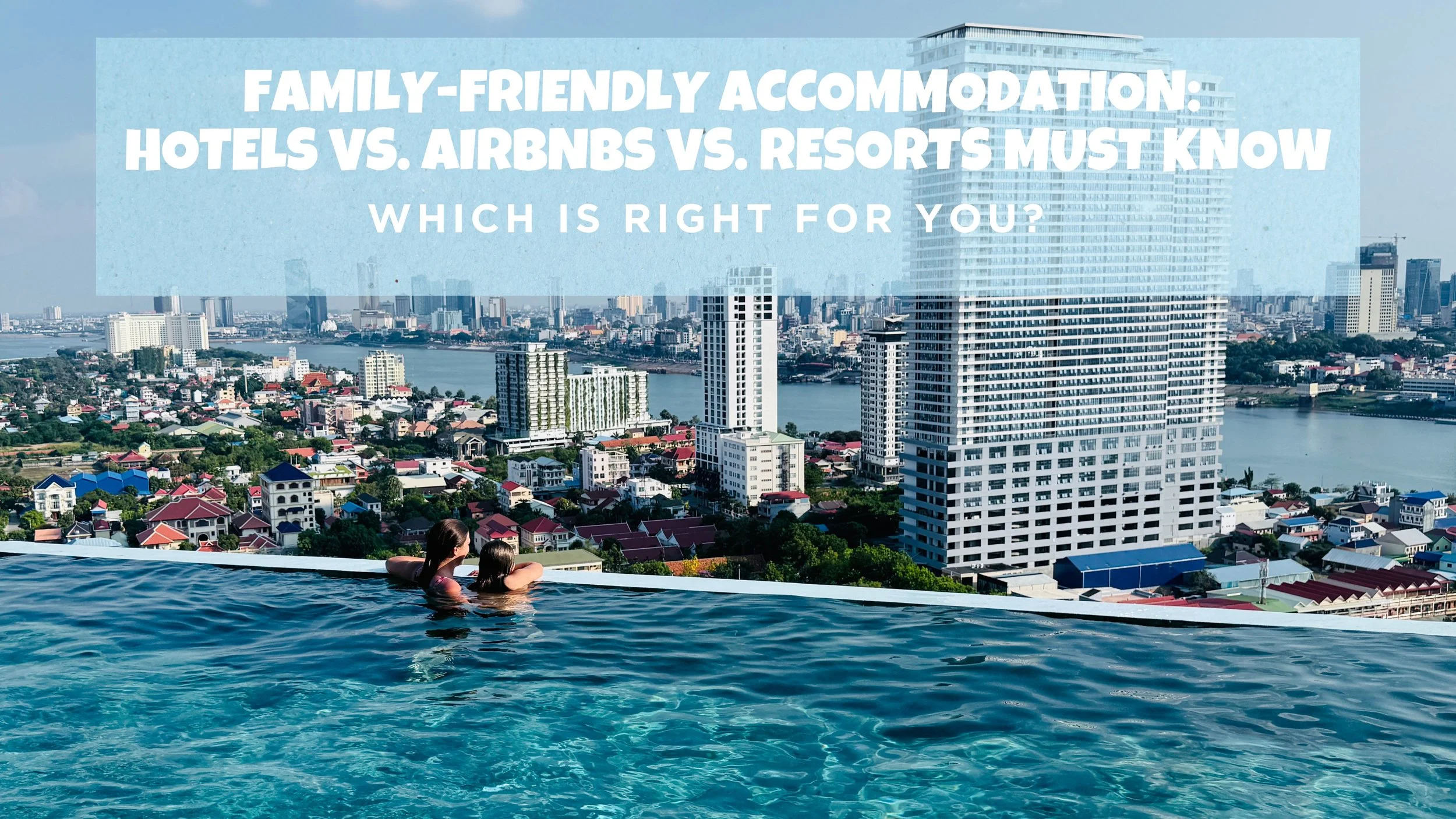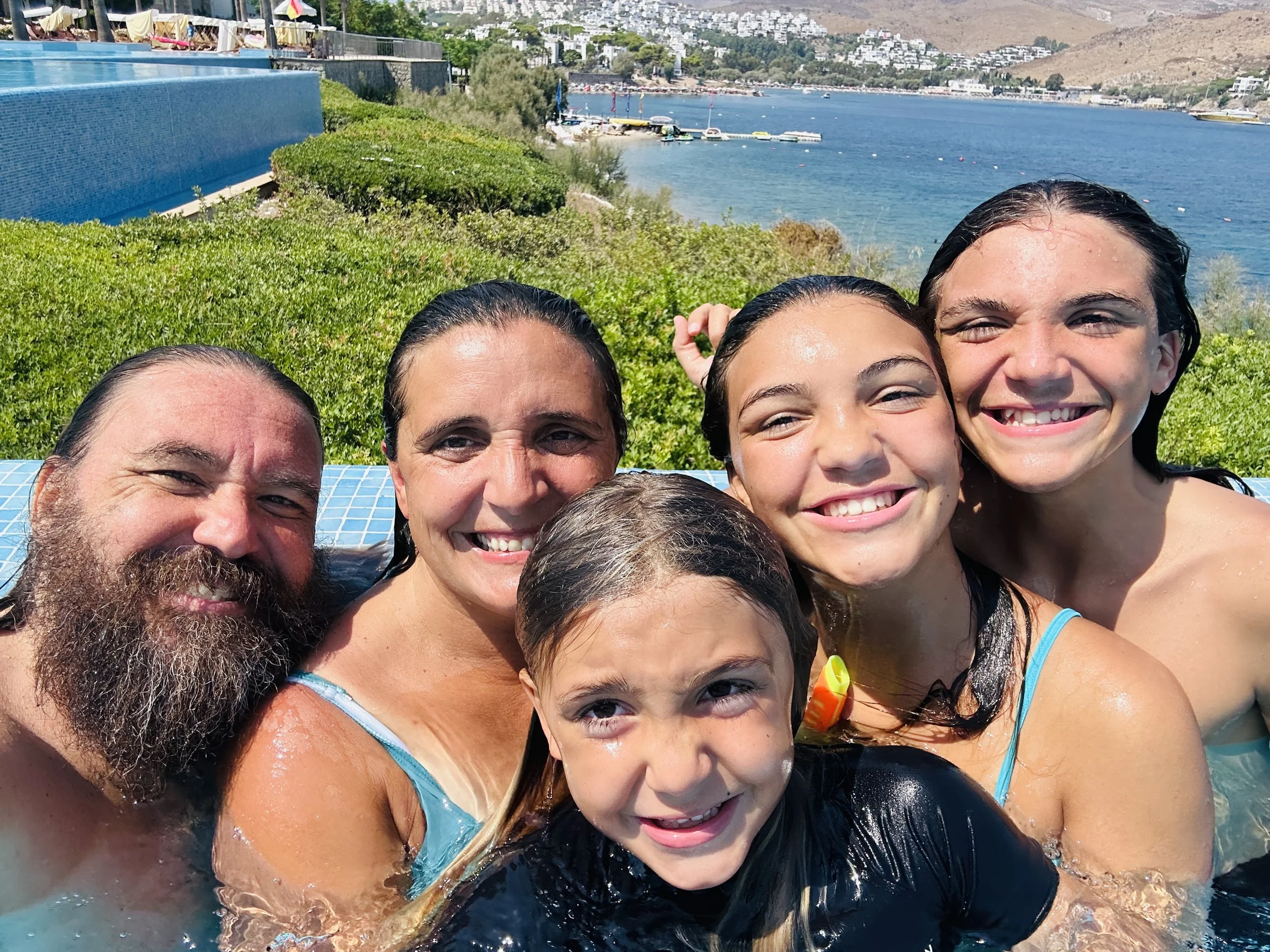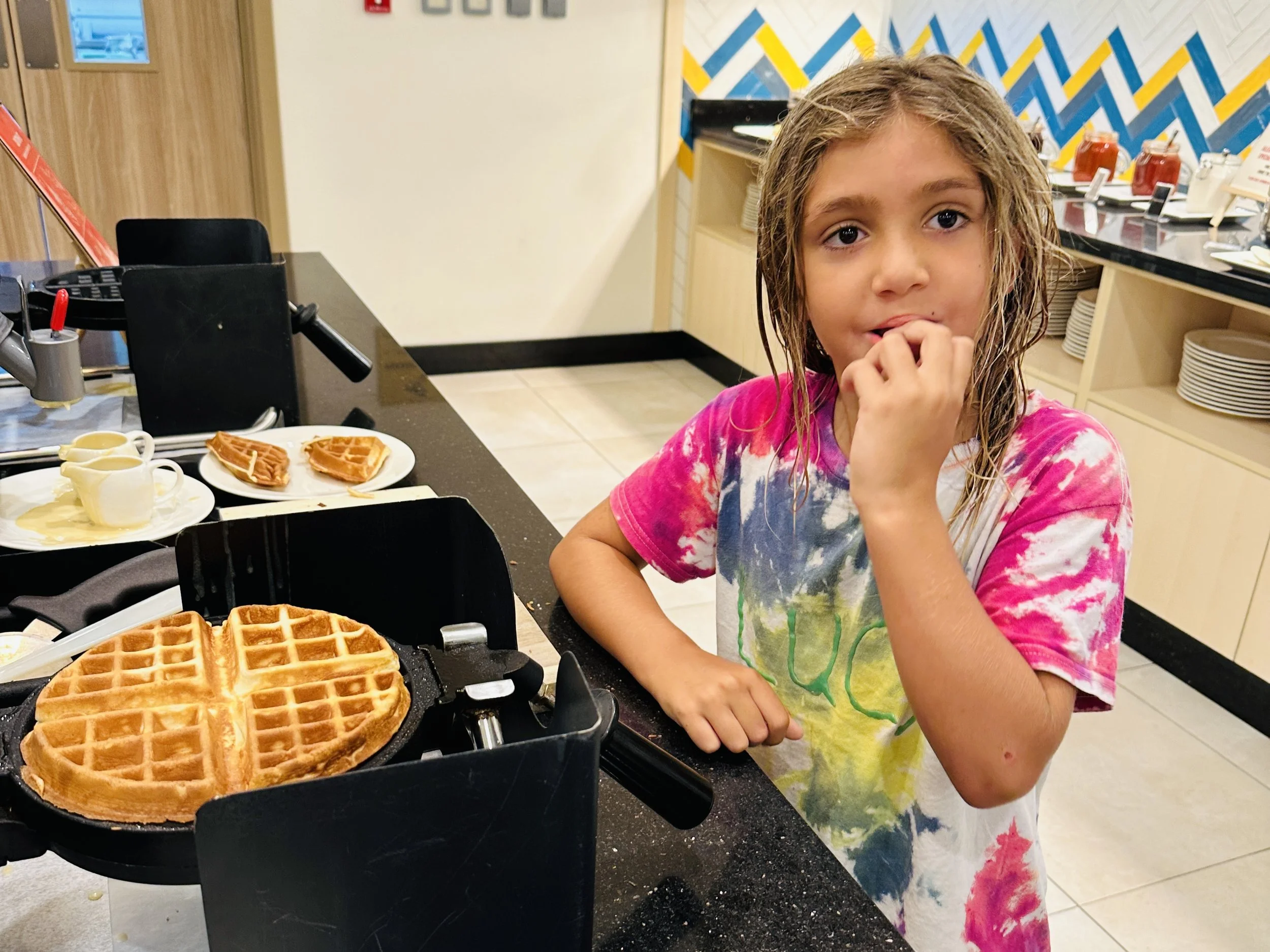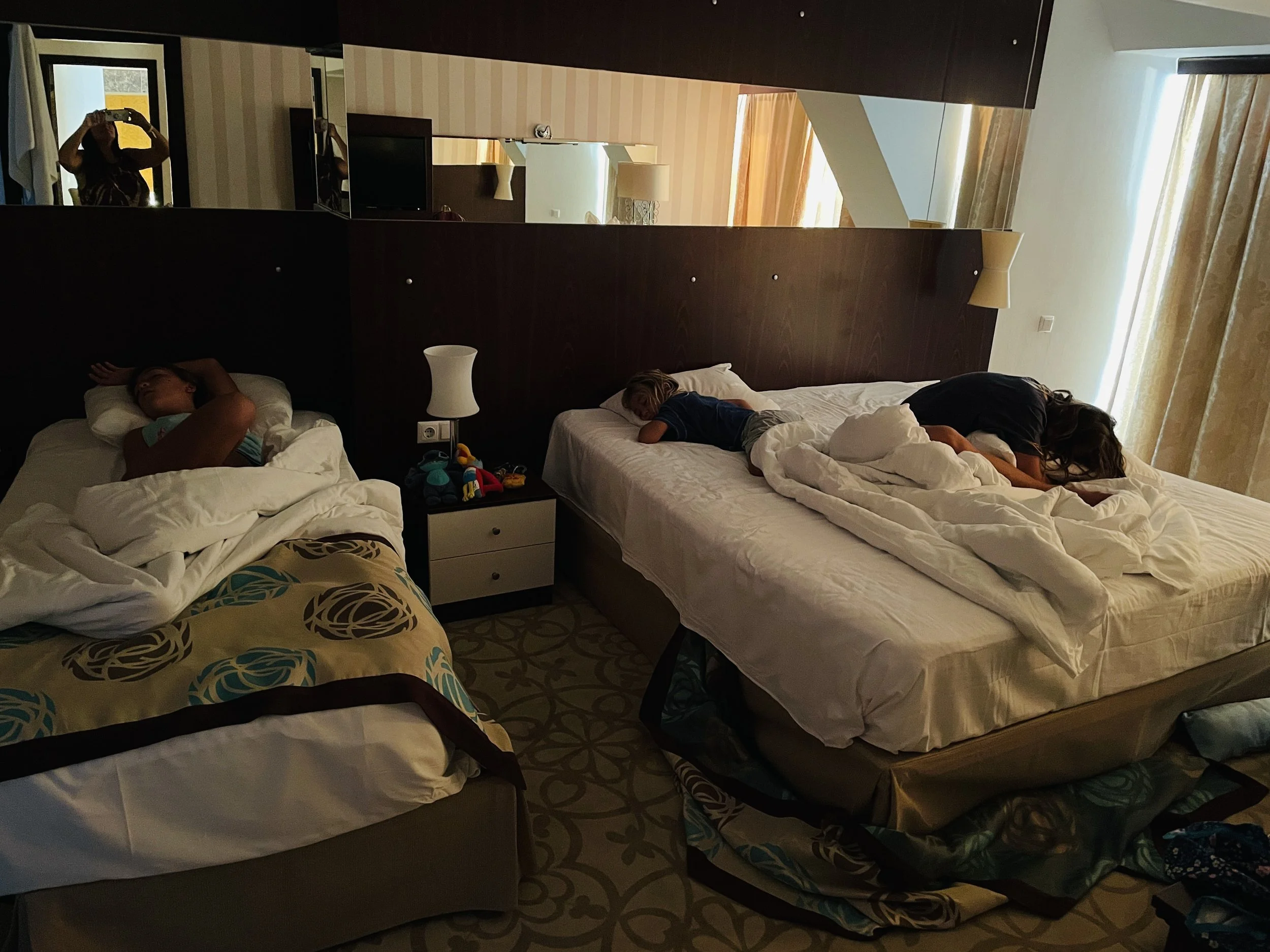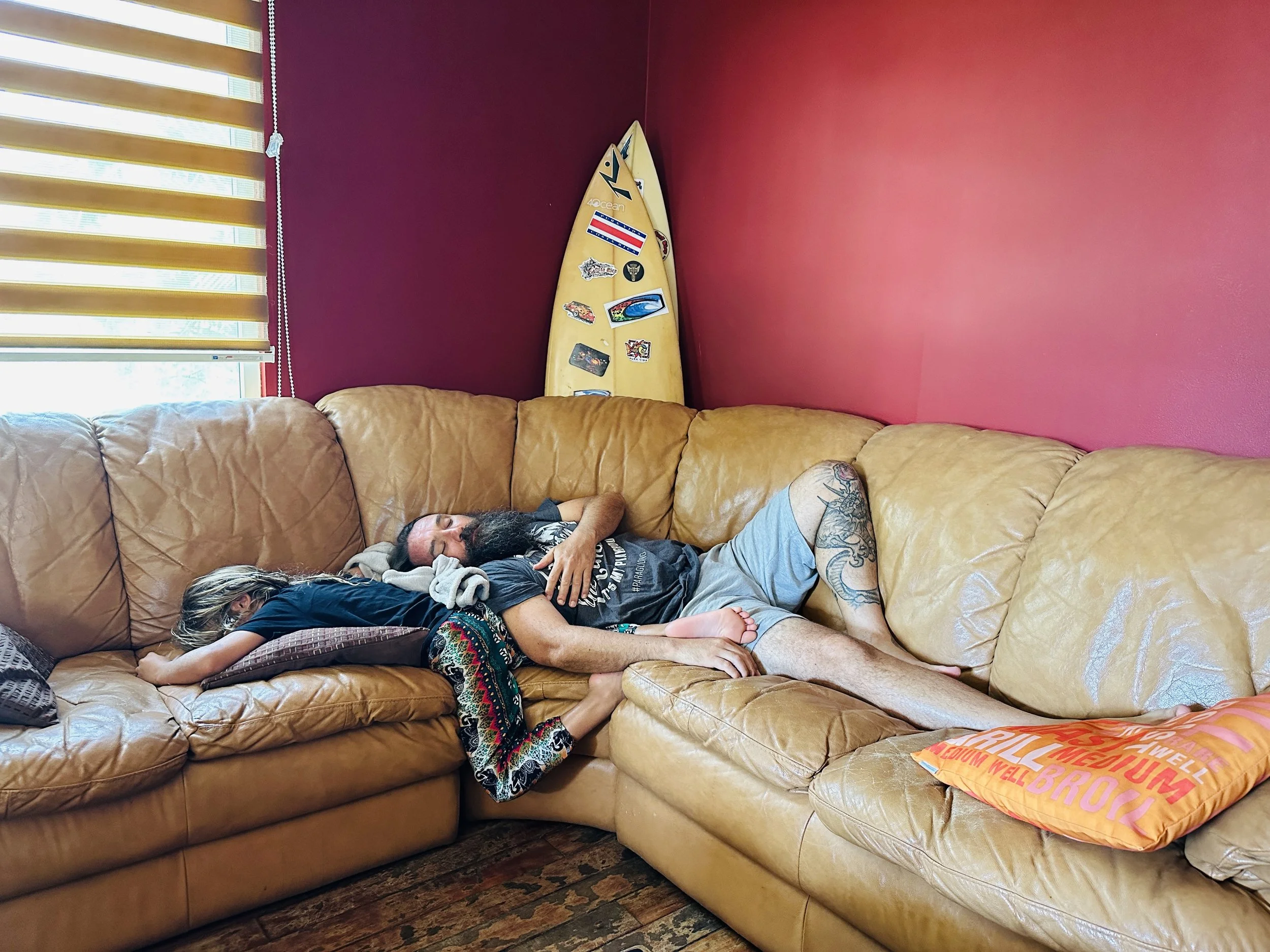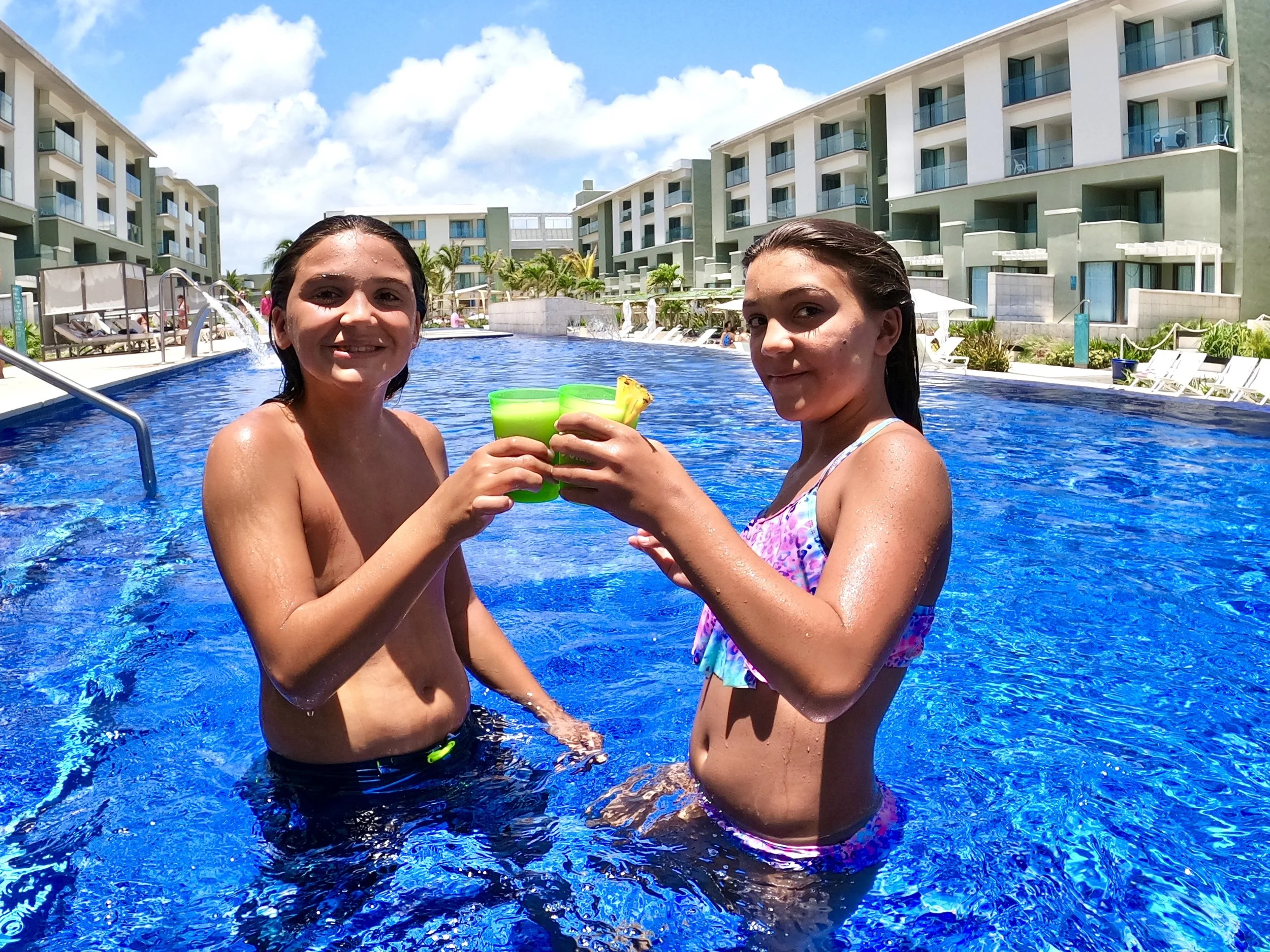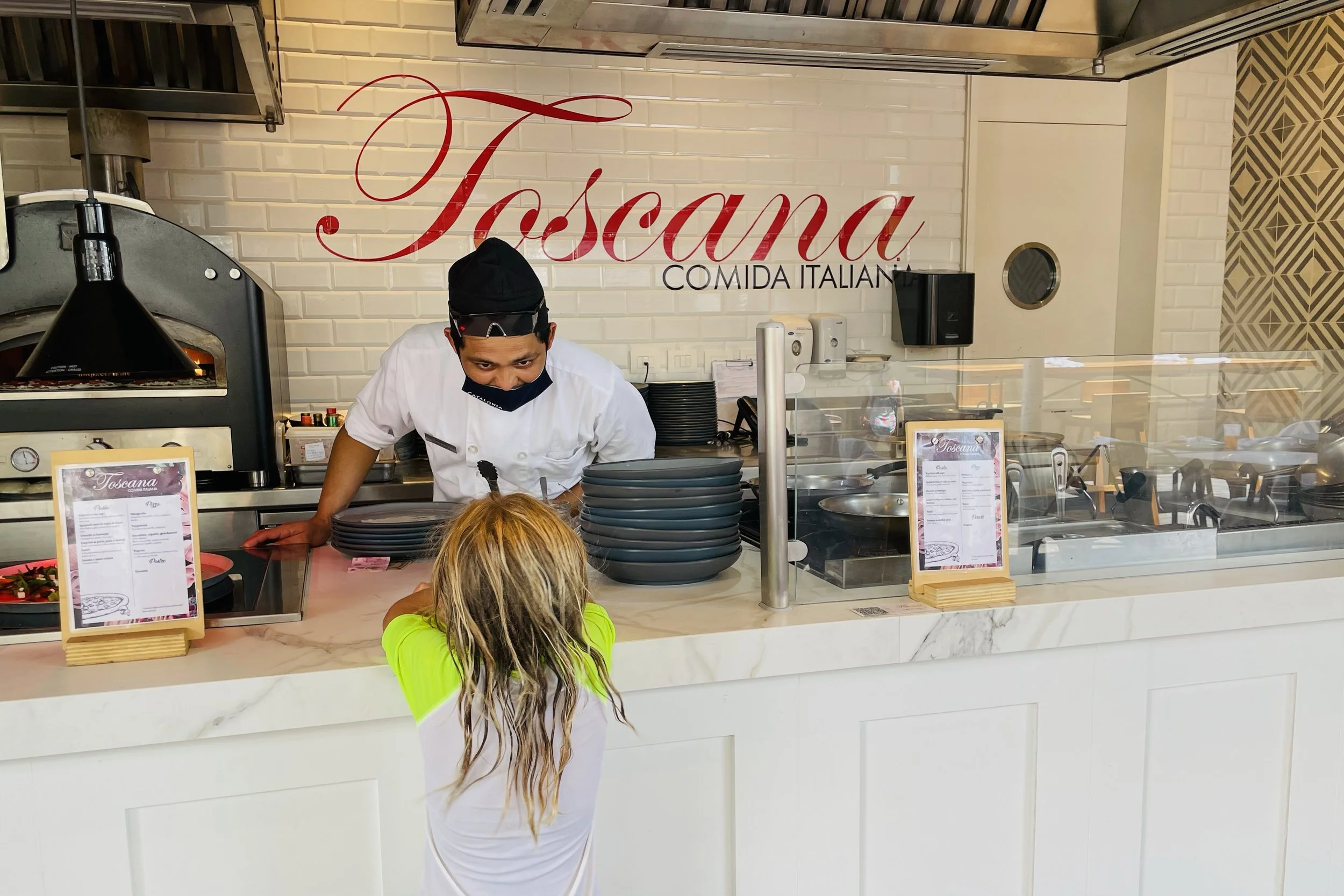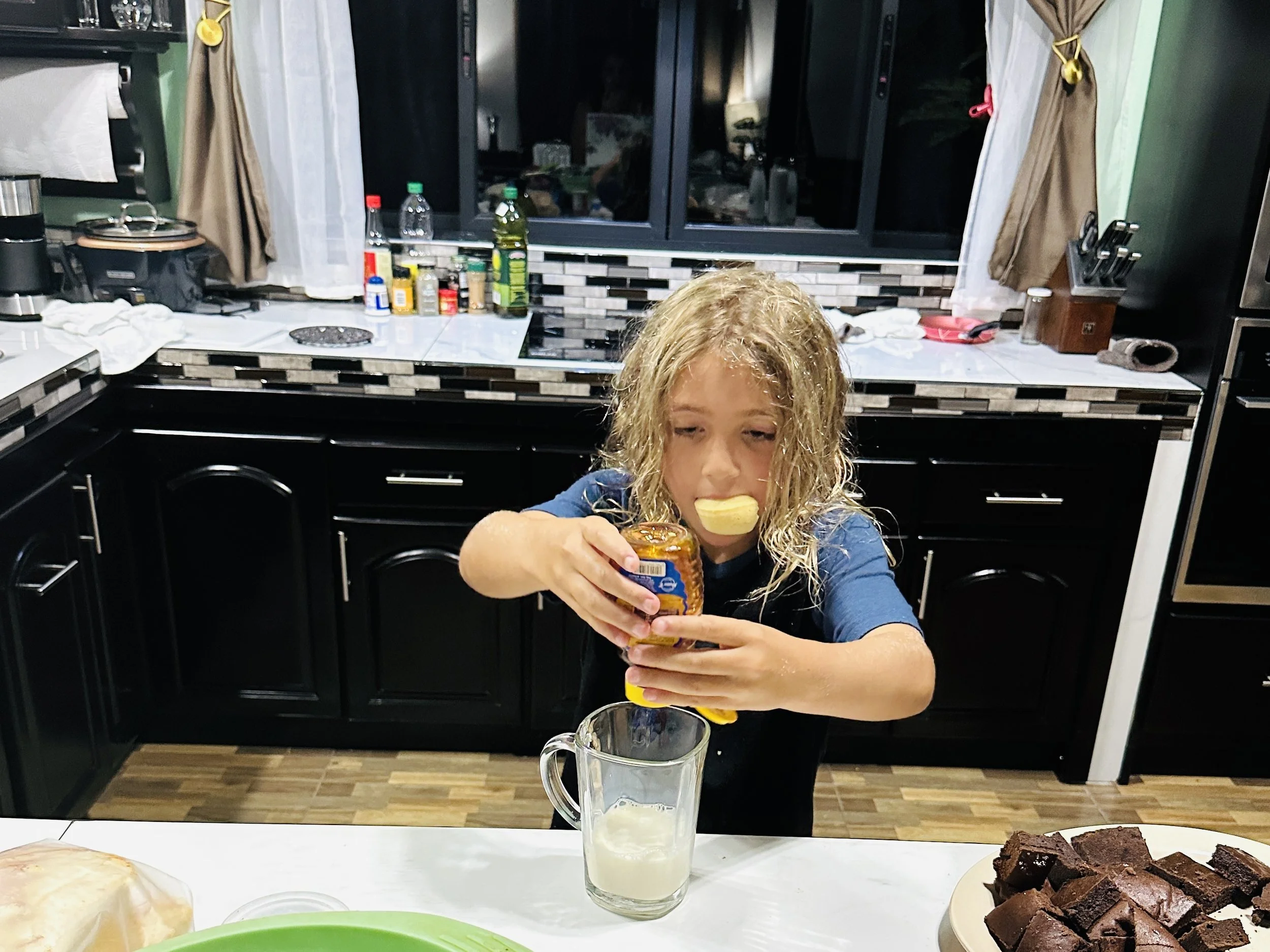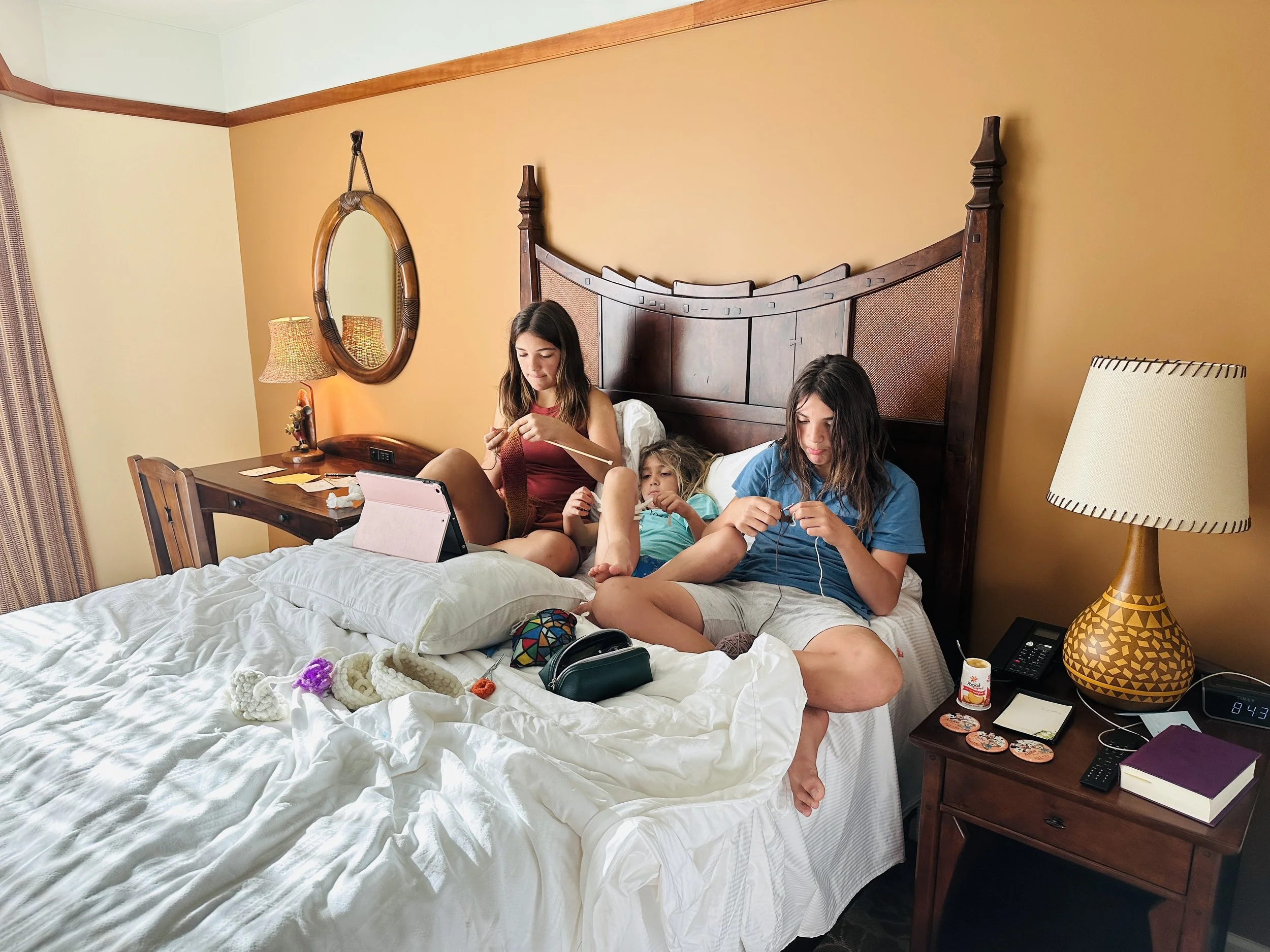Family-Friendly Accommodation: Hotels vs. Airbnbs vs. Resorts – Which is Right for You?
Traveling with kids means finding the right place to stay can make or break your trip. After seven years of full-time family travel, we’ve stayed everywhere—cozy city hotels, spacious Airbnbs, and relaxing all-inclusive resorts. Each has its perks, challenges, and perfect situations. In this guide, I share our real-world experiences to help you decide which option best suits your family’s style, budget, and trip goals.
Planning a family trip is exciting; you imagine the new sights, the delicious food, and the unforgettable experiences you’ll share together. But before you can jump on that plane or hit the road, there’s one big decision to make: Where are we going to stay?
And for many families, that’s where the overwhelm begins.
Should you book a hotel with its familiar comfort and convenience?
An Airbnb or vacation rental that feels like a home away from home?
Or a resort where everything you could want is right on site?
As a family of five who has been traveling full-time for over seven years, we’ve tried them all, sometimes out of choice, other times because that’s what was available. Each option has its pros, cons, and ideal situations, and over time, we’ve determined what works best, depending on our trip style, destination, and budget.
If you’re planning your next family adventure and wondering which accommodation is right for you, let’s break it down.
Celebrating my birthday in a beautiful hotel on Xandu Island in Türkiye
Hotels: Convenience and Reliability in One Package
Hotels are the old faithful of the travel world. Whether you’re staying in a small boutique property or a large international chain, you generally know what to expect. For families, this can be a huge relief, especially if you’re traveling to a new destination for the first time. Personally, one of my favorite parts of staying in a hotel is the included breakfast. I always check if it’s available before booking because there’s just something about heading down to the restaurant in the morning, coffee in hand, and enjoying a leisurely breakfast without having to cook or clean. It feels like a mini vacation within the vacation.
Why Hotels Can Be Great for Families
On-Site Amenities: From breakfast buffets to swimming pools, fitness centers, and sometimes even kids’ clubs, hotels offer conveniences that make traveling with children easier.
Daily Housekeeping: Let’s be honest, traveling with kids means things get messy quickly. Having someone tidy up daily is a small luxury that can make a big difference.
Service and Security: A front desk that can help with directions, call a taxi, or handle emergencies is a comforting safety net, especially in unfamiliar places.
Location, Location, Location: Hotels are often situated in central areas, close to popular attractions, restaurants, and transportation hubs.
Favorite breakfast for Luca in Doha, Qatar
The Downsides of Hotels
Space Can Be Tight: Standard hotel rooms often mean cramming everyone into one room. Some hotels offer family suites, but these can be expensive.
Limited Cooking Facilities: Without a kitchen, you’ll likely be eating out for every meal, which can get pricey (and exhausting if you have picky eaters).
Cost for Larger Families: You may need to book two rooms if the property doesn’t allow extra beds, and that can double your nightly rate.
Sharing the room in North Macedonia
When Hotels Work Best for Families
We’ve found hotels ideal for short city stays, layovers, or trips where we’re out exploring most of the day. For example, during our stop in Tokyo, we chose a centrally located hotel right next to the subway. The room was small, but we were barely there except to sleep. The convenience of being close to public transportation made it well worth the investment.
Airbnbs & Vacation Rentals: Your Home Away from Home
When we first started traveling full-time, Airbnbs quickly became a favorite. They gave us the space and flexibility we needed, especially when the kids were younger and eating at home was essential. Now that they’re older, having their own space has become just as important for maintaining a good balance during our travels. We all have different routines, and if we don’t have to share a single room, everyone can enjoy their time more (and get along a lot better).
Luca and Mass enjoying the couch in our Airbnb in Costa Rica
Why Vacation Rentals Can Be a Family’s Best Friend
More Space: Separate bedrooms, living rooms, and sometimes even outdoor areas mean everyone gets breathing room.
Kitchen Access: Being able to cook your meals can save a significant amount of money and help maintain routines for younger kids and picky eaters.
Laundry Facilities: A washer and dryer are a game-changer for long-term travel, reducing the need to overpack and preventing laundry emergencies.
Local Neighborhood Feel: Staying in a residential area can provide a more authentic experience of local life. However, these days, you can also find plenty of vacation rentals in very central locations.
Emma and Cosimo are enjoying the kitchen in our Airbnb in Phalaborwa, South Africa
The Downsides of Vacation Rentals
Inconsistent Quality: Not all listings live up to their photos or glowing reviews. We’ve learned to carry a few essential kitchen utensils, just in case the rental is missing something crucial. We have a video about them here!
Extra Fees: Cleaning, service, and “extra guest” charges can add up quickly.
Less Immediate Support: There’s no front desk to solve problems instantly. If the Wi-Fi stops working, you’re relying on your host to resolve the issue.
When Vacation Rentals Work Best for Families
We love Airbnb and other vacation rentals for more extended stays or when we want to slow down in one place. In Hoi An, Vietnam, we rented a house for a month that had a pool, a spacious kitchen, a lovely living area, and three bedrooms, plenty of space to spread out. The property even came with bikes, allowing us to get around town easily. The kids could have their own areas, we could cook most of our meals, and best of all, it truly felt like home.
Cosimo and Emma are enjoying the space in our Hoi An, Vietnam Airbnb
Resorts: All-Inclusive Fun and Relaxation
Resorts can feel like stepping into a bubble of vacation bliss. Everything you need - food, entertainment, and activities - is right on site. For some families, that’s precisely what’s required, especially when the goal is pure relaxation.
When we stayed at our first all-inclusive in Mexico Catalonia Costa Mujeres All Suites & Spa, after traveling full-time for three years, we loved it so much that we extended our stay by an extra five days. It was such a refreshing break from all our usual travel responsibilities that none of us wanted to leave.
Cosimo and Emma at Catalonia Costa Mujeres All Suites & Spa
Why Resorts Can Be Perfect for Families
All-Inclusive Options: Meals, snacks, drinks, and often activities are included, which makes budgeting easier.
Endless Entertainment: Pools, waterslides, kids’ clubs, and organized activities keep children happily occupied.
Safety and Security: Gated properties and staff on-site 24/7 give peace of mind.
Relaxation for Parents: Knowing the kids are busy (and safe) lets parents unwind.
Luca is going to order his food at Catalonia Costa Mujeres All Suites & Spa
The Downsides of Resorts
Less Local Immersion: If you don’t leave the property, you may miss out on authentic cultural experiences. We usually enjoy the resort itself and then explore the area afterward, but since we travel full-time, we can organize our time more flexibly.
Higher Upfront Cost: While you might save on meals and activities, the initial price can be steep.
Fixed Schedules: Meal times and activity slots may not always fit your family’s rhythm.
When Resorts Work Best for Families
Resorts are ideal for beach vacations, milestone celebrations, or moments when you simply need to recharge.
During our stay in Mexico, the kids loved the daily activities, and we appreciated knowing that meals were taken care of. They would wander off on their own to grab lunch from the different food stands, then spend the entire day swimming at the beach or playing in the pool. The entertainment team always had something fun planned, and the nightly shows were terrific. It was one of those rare trips where no one complained about being bored or hungry.
Mass and I enjoying a spa date at Catalonia Costa Mujeres All Suites & Spa
How to Decide: A Family Accommodation Checklist
When choosing where to stay, ask yourself:
Trip Length: Short trip or extended stay?
Purpose of Trip: Relaxation or exploration?
Budget: What’s your total nightly cost, including meals and transportation?
Space Needs: Will one room be enough, or do you need separate areas?
Food Plans: Do you want to cook or eat out?
Kids’ Ages & Needs: Do they need naps, play areas, or specific amenities?
Enjoying the space in our hotel in Hanoi, Vietnam
Our Personal Take
We’ve learned there’s no single “best” option; it all depends on the trip.
Hotels are our go-to for short city breaks or stopovers.
Airbnbs are ideal for longer stays, especially when we need space to work and homeschool.
Resorts are perfect when we want a break from planning and relax together.
The beauty is, you can mix and match. On one trip, we’ve stayed in a resort for a few days of rest, then moved to an Airbnb in the city for exploration.
Luca making his breakfast in Costa Rica
Final Thoughts
Over the years, we’ve stayed in just about every type of accommodation, from tiny city hotel rooms to sprawling vacation homes and all-inclusive resorts. Each one has its time and place, and our choice often depends on the destination, length of stay, and what we want from that trip.
Sharing some time on the same bed in Hawaii
Since we travel full-time, we often opt for Airbnb accommodations over other options, especially in countries with high living costs. Having a kitchen means we can cook our meals, which helps us keep costs down, and we also get the bonus of extra space for everyone to spread out.
That said, we still happily choose hotels for short stays, city breaks, or when we want the ease of included services. The cool thing is that more hotels are starting to offer apartment-style rooms with kitchenettes, which still include breakfast. During our recent stay in Phnom Penh, we experienced the best of both worlds: the space and cooking facilities of an apartment, combined with a delicious breakfast waiting for us every morning.
Ultimately, there’s no single “right” choice; it’s about finding the accommodation that best matches your travel style, needs, and priorities for that particular trip. And if you’re ever unsure which option might work best for your family, I’m happy to share my experience and help you find the perfect fit as your travel agent.

